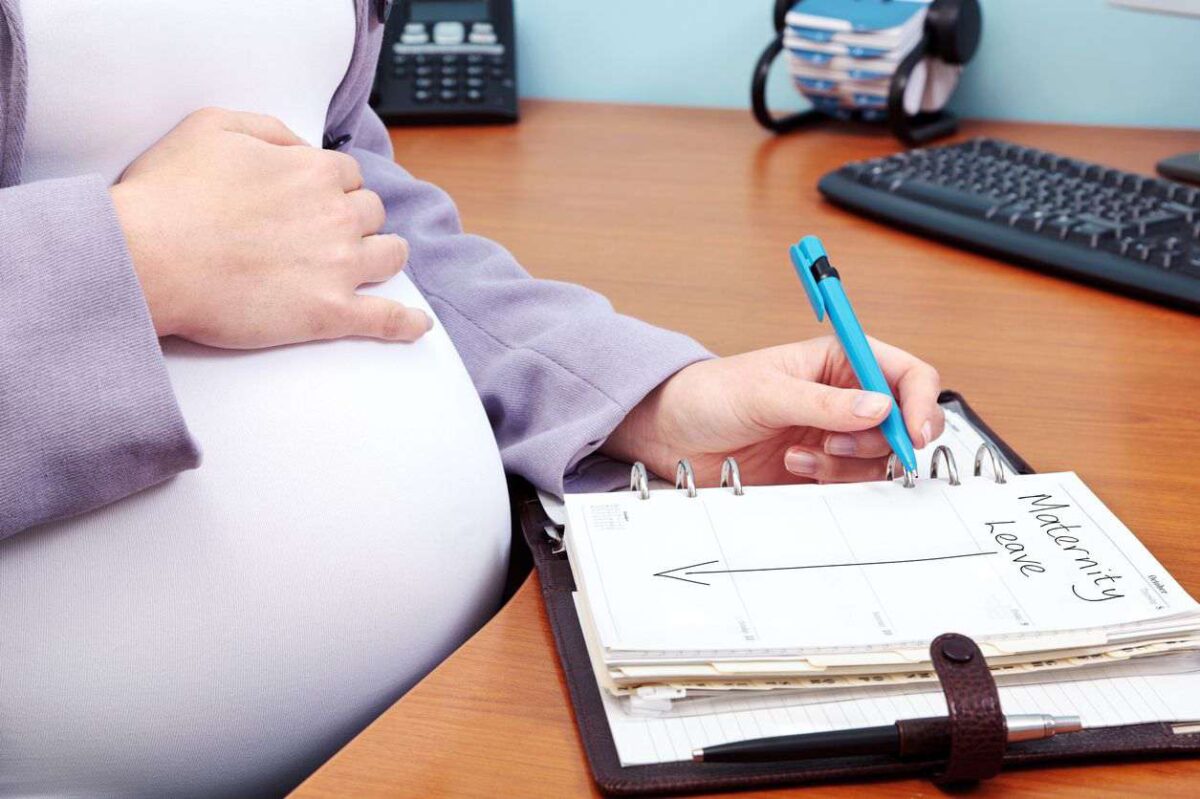Having a baby in the UAE can be a beautiful experience for parents. It is a great location with a high quality of life, thus, the family will welcome the baby with excitement. Nevertheless, there is a factor that every mother has to consider if she is working, and that is maternity leave in UAE. Pregnancy can be hard for working moms; therefore, they need to have some time to recover and spend with the baby. This is why the UAE Government has established several provisions for maternity leave in UAE 2023.
In this article, we are going to explore the different policies for maternity leave in UAE for private sector 2023 and the public sector. Let us observe:
- Get to know the provisions for maternity leave in UAE
- Learn about the benefits of giving birth in UAE
- Did you know the UAE has provisions for paternity leave?
- Understanding the maternity leave in the UAE for public sector employees
- See the maternity leave in UAE for private sector 2023
- Everything about having a baby as an unmarried woman in the UAE
1. Get to know the provisions for maternity leave in UAE
The UAE is a sought-after destination for many professionals that want to land a dream job in Dubai or any other of the Emirates. In this regard, the UAE Government has established a set of rules for both public and private employees.
This is known as the UAE Labour Law. It governs employment and regulates several areas such as emergency leave in the UAE, annual leave, and more.
In terms of maternity leave UAE, it also has several guidelines that employers in private sector companies must follow.
Thus, if you want to have a baby in the UAE, and you are an employee, you need to check the provisions to ensure your rights are met.
Nevertheless, it is worth mentioning that the UAE has made some changes to the UAE Labour Law in terms of annual, sick and other leaves, including maternity leave Dubai.
1.1 Important aspects of maternity leave in Dubai in the Labour Law
As per Article 30 of the Labour Law, the UAE maternity leave follows the next provisions:
- The employer must grant maternity leave to the female employee upon her request.
- The date of the start of the maternity leave should start the last day of the month preceding the month in which she will be expected to give birth.
- A medical entity should issue a certificate stating the month of the expected delivery date.
- The maternity leave does not prejudice the female worker’s rights regarding other leaves.
- The female worker cannot work for another employer during her maternity leave; otherwise, her employer may deprive her of her salary, even if she earns the minimum wage in UAE.
- A female worker cannot be terminated from her service due to pregnancy or during her maternity leave.
As you can see, the UAE’s new Labour Law is very clear regarding the rights and duties of a female worker. Both the employer and employee must adhere to these provisions, otherwise, they may face consequences.
However, in some cases, female employees may face employment issues with an employer. In this regard, it is advisable to look for professional help to solve the matter. They can help you file a complaint regarding labour issues.
2. Learn about the benefits of giving birth in UAE
The Dubai maternity leave is part of the employee benefits in the UAE. Therefore, every female employee has the right to get this leave if the plans to get pregnant or if she is expecting a baby.
The UAE is a country known for its outstanding high-end lifestyle and amazing benefits reserved for residents.
In this regard, having a baby in the UAE is a great experience because you have the following advantages:
- The UAE has one of the most robust and luxurious maternal healthcare services.
- Access to childbirth amenities in modern infrastructure.
- Easy to book an appointment for maternity services across the seven Emirates.
- Get to enjoy fully-paid leave for a specific period depending if you work for a public or private company.
- Get access to medical insurance coverage.
- Have access to prenatal and ante-natal care which includes preparatory classes and information about postnatal care.
- Give birth in any of the state-of-the-art hospitals.
3. Did you know the UAE has provisions for paternity leave?
As per the provisions of the new UAE Labour Law, fathers can also get a few days off from work to stay with the baby and help the mom.
Although the UAE labour law maternity leave is covered under the Article 30, paternity leave is included in Article 32 under the provisions for “other leaves”.
Therefore, as per Article 32, Clause 1(b), the provisions for paternity leave are as follow:
- A parent (father or mother) who has a newborn child is entitled to a leave period of 5 days. The worker can request the leave for a continuous or intermittent period within 6 months of the date of birth of the child.
On the other hand, some employees may grant voluntarily three unpaid days off to a new father, but this is not mandatory.
These type of regulations can be very helpful during motherhood maternity since allows the father to adjust to the new reality while leaving work-related issues out of his mind for a few days.
Also, to ensure you get these benefits, you must have your valid UAE Residence visa and work permit. Keep in mind that working without a work permit in the UAE is not legal, so you may not receive the benefits stated by the law.
4. Understanding the maternity leave in the UAE for public sector employees
As a public sector employee, as stated by your employee contract UAE, you have rights under UAE law for a pregnant employee. Thus, your maternity leave is longer than for those working in the private sector.
When it comes to maternity leave for the public sector, the rules as per the federal government following Article 53 of applicable law are as follows:
- The female employee in a permanent position can request 90 days of a fully-paid leave.
- After the female employee resumes work, she gets 4 months of 2 hours’ reduced working hours. This is for nursing the child and can be at the beginning or end of the working hours. These breaks are fully-paid.
- In the case of male employees, they get a three-day paid paternity leave during the month of delivery if the baby was born in the UAE.
As you can see, it is longer than maternity leave for private sector. Also, it is worth mentioning that these rules may change a little bit depending on the jurisdiction where the female employee is working.
4.1 How is maternity leave in Dubai Government?
Female workers in Dubai Government also get a three-month fully-paid leave starting from the delivery date. However, she can also apply for maternity leave up to 30 days before the expected delivery date.
Also, the female employee can add annual leave to the maternity leave, getting a maximum of 120 days of leave.
After the baby was born, the female employee can get 2 hours of reduced working hours for one year.
4.2 See how varies maternity leave in Sharjah
The Sharjah Government issued a local decree in 2016 where it states that the female worker is entitled to a maternity leave of 120 days divided as follows:
- 90 days of fully-paid leave.
- 30 days of fully-paid leave.
4.3 Ras al Khaimah Government maternity leave
Female workers of the Ras al Khaimah Government can get the same benefits of maternity leave as stated by the federal government, which are 90 days of fully-paid leave and the nursing period was extended to one year in 2015.
5. See the maternity leave in UAE for private sector 2023
If you have a private sector employment contract, it means you work for a private company. Thus, the maternity leave in UAE for private sector 2023 is different than for the public sector.
Female employees working in the private sector can get the following maternity leave in UAE for expats:
- 60 days of maternity leave that are divided as follows:
- 45 days of a fully-paid leave.
- 15 days of a half-paid leave.
Additionally to this, the female worker can request 45 days of unpaid leave additional if the mother or the child is ill. But, she must submit the supporting documents as proof.
In terms of pregnancy in UAE, if the baby was born with a disability, the female worker is entitled to an additional 30 days of fully-paid leave. After this period, she can request an additional 30 days of unpaid leave.
About the date of the maternity leave, the female employee can take the time off before and after the delivery.
In this regard, the payroll team needs to make these calculations properly. Also, it is important to pay the female worker on time to avoid facing the new penalties for late payment of salaries.
5.1 Nursing breaks after the delivery
In addition to the days off, the female worker is entitled to nursing breaks that should follow the next guidelines:
- The female employee can get two nursing breaks every day for 6 months from the date of delivery.
- These nursing breaks cannot be more than 30 minutes each one.
- During this time, the female employee is entitled to her full pay.
Nevertheless, the working hours for pregnant in UAE do not change, unless there is a medical condition or as per agreement with the employer.
Regardless of the classification of the private sector company, it must adhere to the provisions established by the law. This is why it is important to know the true cost of an employee since there are many benefits a company has to grant them.
6. Everything about having a baby as an unmarried woman in the UAE
The UAE is an Islamic country that follows very strict rules when it comes to certain aspects.
Previously, unmarried couples were not allowed to live together. However, now the Government has started to be more flexible in this matter. Thus, when it comes to an unmarried woman pregnant UAE, the laws may vary depending if she is a single mother or if she has a partner.
Nevertheless, the benefits are still applicable for the female worker. Regardless if she is a single mother or if she is unmarred.
6.1 Facts about being a single mother in the UAE
As for single mothers, in October 2022 was introduced a new law. This recognizes the right of the mother to register her child without requiring a marriage certificate or having the father present.
Therefore, the mother can fill out a form to register her child. But also she has to submit proof of birth and state that the father is not known. The baby will be registered by her name.
6.2 Pregnancy in UAE without marriage 2023
When it comes to babies born out of wedlock, everything changed after the rules for unmarried pregnancy in UAE 2021.
Unmarried couples can register their child and get their birth certificate. This is as long as they fill out a form and sign a declaration. This must state they are the biological fathers of the baby. But, this law also applies to non-Muslim couples and Muslims from other countries such as UK or USA.
If you are a UAE resident and you want to learn more about the provisions of the new UAE Labour Law, we invite you to visit our blog. Here you will learn everything about UAE regulations such as how to secure part-time work, everything about the leave salary or when you can leave a job without notice.












